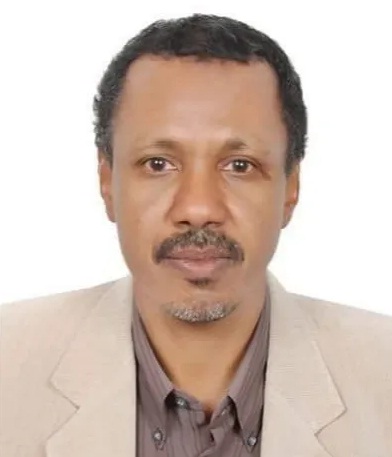Cabinet Formation Reveals the Absence of Standards and Vision

By Dr. Ibrahim Al-Siddiq
(1)
The debate surrounding ministerial portfolios exposes a genuine national crisis—namely, the absence of a comprehensive national project. This is particularly evident among political forces and social movements. It also reveals a flawed perspective on the purpose of holding ministerial positions, which should be about serving citizens and improving their welfare. The focus on revenue-generating ministries and the avoidance of those that directly serve the public or enhance productivity confirms this issue.
While all federal ministries are, or should be, important, it is striking that political movements shy away from ministries that provide essential services such as Health, Education, Electricity, and Water. Aren’t these the ministries that reflect real concern for citizens, especially the vulnerable, and aim to expand public services? Why then are they overlooked when political and societal actors scramble to divvy up power?
Likewise, why do these forces avoid production-oriented ministries such as Agriculture, Livestock, and Industry—even though they frequently proclaim the importance of increasing productivity and emphasize Sudan’s vast resources and wealth? Yet, no one seems genuinely interested in these ministries.
In 1986, during the formation of Sadiq Al-Mahdi’s government, the Ministry of Trade became a center of intense conflict, as it was responsible for issuing import licenses. The trees in Martyrs’ Park became the setting for a bustling market of license brokers. The country plunged into a fierce competitive crisis when Minister Dr. Mohamed Youssef Abu Harira of the Democratic Unionist Party overreached in asserting control over the ministry. The situation ended with his resignation, the collapse of the coalition between the two major parties, and a reformation of the government, with Mubarak Al-Fadil eventually taking over the ministry. Thus, ministries become focal points of interest solely because of temporary advantages.
The same is true of the Ministry of Finance in Sudan.
The Sudanese Communist Party, for its part, had a longstanding interest in the ministries of Health and Education. For years, it managed to utilize these institutions to serve its affiliates—offering them protection, training opportunities, and networks with international and regional organizations and associations. These ministries were also used as a cover from security monitoring and prosecution. However, this was never truly about serving the public. In fact, the party has no significant record of delivering services to the people, except for the “Suki Pumping Station” project overseen by Minister Mortada Ahmed Ibrahim in 1970, early in the May Regime. The project collapsed the day after its inauguration. At the time, newspaper headlines read: “Let the Suki Pump Fall… and Let the Truth Remain.” And the truth is—no one really cares about the truth.
(2)
Several ministries gained attention solely because their ministers left a strong imprint. Take, for example, Mohammed Ahmed Al-Mahgoub (Foreign Affairs Minister in 1954, 1964, and 1967), or Muhyiddin Saber Mohamedin (Minister of Education in 1969), or Khartoum’s commissioner Mahdi Mustafa Al-Hadi, as well as Karam Allah Mohamed Karam Allah and his deputy Dr. Ibrahim Al-Amin, Dr. Abdel Halim Al-Mutaafi, Dr. Abdel Rahman Al-Khidir, and General Abdel Rahim Mohamed Hussein. Each had his own vision and perspective, which did not always align with the stance of their political base.
The efforts of Dr. Ali Al-Haj in promoting federal governance and Professor Ibrahim Ahmed Omar in higher education proved effective because both aligned with their political and societal constituencies’ roadmaps.
Dr. Abdalla Hamdok, on the other hand, spent three lean years (2019–2021) awaiting a practical project or action plan, only to leave office without achieving tangible results. This suggests that the issue is not with the ministry itself, but rather with having a clear action plan or the right person in the role. So why don’t we focus on that instead?
(3)
Another proposal: Why not insulate key ministries—such as Finance and Foreign Affairs—from political polarization by implementing transparency standards and appointing qualified experts rather than political figures?
Let clear safeguards be established: for example, the Ministry of Finance should be responsible solely for revenue collection, with no authority over expenditures. Even approved budget items should be disbursed through specialized national project bodies or the appropriate federal or state ministries.
Foreign policy should be formulated by a higher council, akin to the Security and Defense Council, with the Ministry of Foreign Affairs functioning as an executive body. This would be the ideal model during political transition periods and in the absence of legislative and oversight institutions.



